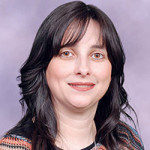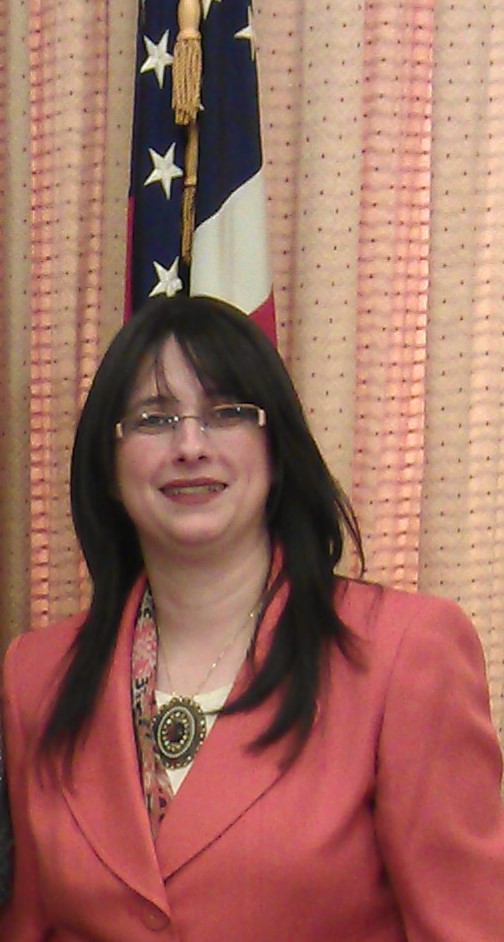Sarah Avtzon has a strong passion for helping children find the most productive pathways for success.
To pursue her passion, Avtzon earned bachelor’s degree in psychology, two master’s degrees in curriculum development with neuropsychology post graduate coursework, an Ed.S in instructional technology and a PhD in special education.
A native of Morocco, Avtzon speaks five languages, and grew up in a community with respect and tolerance among many backgrounds.
She came to Daemen in 2004 as a full-time faculty member and is now the chair of Daemen’s Brooklyn, New York Branch Campus Graduate Programs in Special Education
What inspired you to pursue your work?
As a child, I created fun games to help my classmates who were struggling to learn. We had learning play-dates, which helped them succeed in school. Since then, my dream was to develop educational games for every subject and make learning accessible for all.
What is a philosophy you follow as the basis for furthering your work?
In my high school religious studies class, I learned “Al Pi Darko,” which in Hebrew means “teach the child according to his/her ways.” This became my mantra. Essentially, this advises us to teach children by leveraging their own strengths and equipping them with strategies they can use to foster greater levels of independence.
What are some resources you have offered to help manifest your dream of helping students with disabilities? 
Early on in my career, I developed a series of educational workshops for teachers titled, “Play to Learn.” Designed around play and multi-sensory approaches, the programs made early math concepts and literacy significantly easier for children with ADHD, sensory disorders and learning disabilities.
To go further outside of the box, I delved into psychology and neuroscience to learn more about how to impact student learning more efficiently and effectively. Prior to the onset of the Covid-19 pandemic, I engaged in multiple action research studies about the impact of neuroscience-based training programs on overall cognitive, socio-emotional growth and academic areas for students with disabilities. Initial results showed growth. I plan to resume these when COVID-19 restrictions are lessened.
What do you enjoy most about your job?
Working with students and seeing their personal and professional growth is phenomenal.
Graduation holds a special place in my heart. Families thank us for accommodating their religious calendars and offering support and guidance to their children.
One of the most memorable moments was when an elderly women showed me a number on her arm – she was a holocaust survivor and explained how grateful she was to see her great-grandchild graduate, especially after where she had been.
On another occasion, Muslim parents thanked me for supporting their daughter and making her feel comfortable right from the start of the program – I had baked her traditional baked goods during Ramadan, and spoke Arabic with her.
Daemen has offered our students a space where diversity can thrive. Our programs embrace everyone from various religious backgrounds, including Jewish, Muslim, Christian, Catholic, and more.
What’s next for you in your work? What are you looking forward to?
Our graduate programs in special education include coursework focused on strength-based approaches and strategy-based instruction to train teachers on how to identify specific cognitive skills that serve as facilitators and inhibitors to learning. I spoke about these approaches at a congressional briefing in 2012 to allow Title III funding to be more flexible and to include neuropsychology models of instruction beyond what is currently available in the field.
I am looking forward to launching distant-education versions of our current masters programs in special education and spreading the impact of our reputable and rigorous programs to other communities nationally and internationally. I firmly believe that these efforts will have a significant impact on our graduates’ preparedness to represent a vast array of perspectives in education/special education from across the world and to thrive in globally connected environments.
Are there any passions outside of work that inspire you?
Humanitarian aid is a priority in my life. Beyond helping to establish the Rule of Law in Ukraine and Russia through U.S. Agency for International Development (USAID) grants, I volunteer for many organizations in Central Africa, Morocco, through non-governmental organization (NGOs) development work and advocacy for children from low socio-economic status and disabilities.
I also write children’s books and invent educational games. I’m currently working on a series of five social and emotional books for children.
